Disclosure: This article contains affiliate links. We may earn a commission from purchases at no extra cost to you, which helps our travel content.
Every time I return to Ponce, my mother's hometown, I feel the whispers of my ancestors in the ornate facades and colorful colonial streets. As a photographer with Puerto Rican roots, I've spent years documenting this architectural wonderland beyond its famous landmarks. La Perla del Sur offers couples a perfect weekend of historical discovery, where each building tells stories of sugar barons, cultural resilience, and the island's complex colonial past. Join me as I reveal the hidden corners of Ponce that most visitors miss – the places where history breathes through weathered stone and tropical light dances across century-old balconies.
Beyond the Parque de Bombas: Ponce's Architectural Soul
While the iconic red-and-black striped firehouse dominates Instagram feeds, Ponce's true architectural character lies in its less-visited corners. Begin your exploration at Casa Armstrong-Poventud, an exquisite example of neoclassical architecture with striking blue and white details that capture the morning light beautifully. This 1900s mansion showcases the wealth that once flowed through southern Puerto Rico during the sugar boom.
Just two blocks away stands the often-overlooked Casa Vives, a magnificent example of Ponce Creole architecture. Its distinctive yellow facade with white trim and intricate iron balconies offers a glimpse into the island's Spanish colonial influence blended with tropical adaptations. The interior courtyard, when occasionally open to visitors, reveals original tile work that I've spent hours photographing in different lighting conditions.
For the perfect morning coffee break, head to Café Don Luis on Calle Cristina, where the building itself dates back to the 1880s. The antique coffee grinder still works, and the owners know more about local history than most tour guides. I always bring my insulated travel mug since I like to sip my café con leche slowly while sketching architectural details in my notebook.
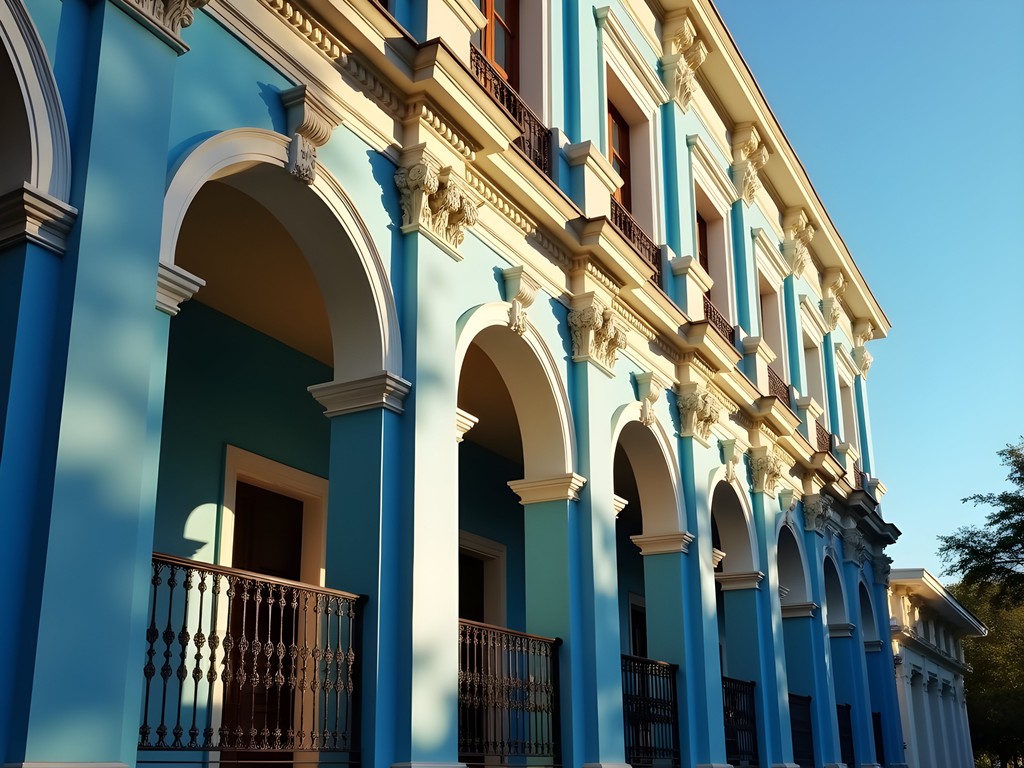
💡 Pro Tips
- Visit Casa Armstrong-Poventud early morning for the best light on its blue facade
- Look for the hidden masonic symbols in Casa Vives' ironwork
- Ask for permission to photograph interior courtyards - locals are often happy to share if asked respectfully
Sacred Spaces: Forgotten Churches and Cemeteries
Beyond the majestic Cathedral of Our Lady of Guadalupe in the main plaza lies a network of smaller, historically significant religious sites that tell a deeper story of Ponce's spiritual heritage. My favorite is Iglesia de la Santísima Trinidad, tucked away on a quiet street corner. Its modest exterior belies the stunning woodwork inside, carved by local artisans in the 1870s. The light filtering through the simple stained glass creates a meditation in color that I've captured countless times with my camera.
For a truly moving experience, visit Cementerio Civil de Ponce at golden hour. While Ponce's Catholic cemetery gets more attention, this civil cemetery houses elaborate monuments to the city's free-thinking historical figures. The tomb of Isabel Luberza Oppenheimer (the infamous Madame who inspired the novel 'The House on the Lagoon') reveals fascinating stories about Ponce's complex social history.
When photographing these sacred spaces, I rely on my lightweight tripod for the often dim interior shots. The respectful distance it creates between me and my subject also feels appropriate in these contemplative settings. Just remember to check if photography is permitted before setting up equipment in active churches.
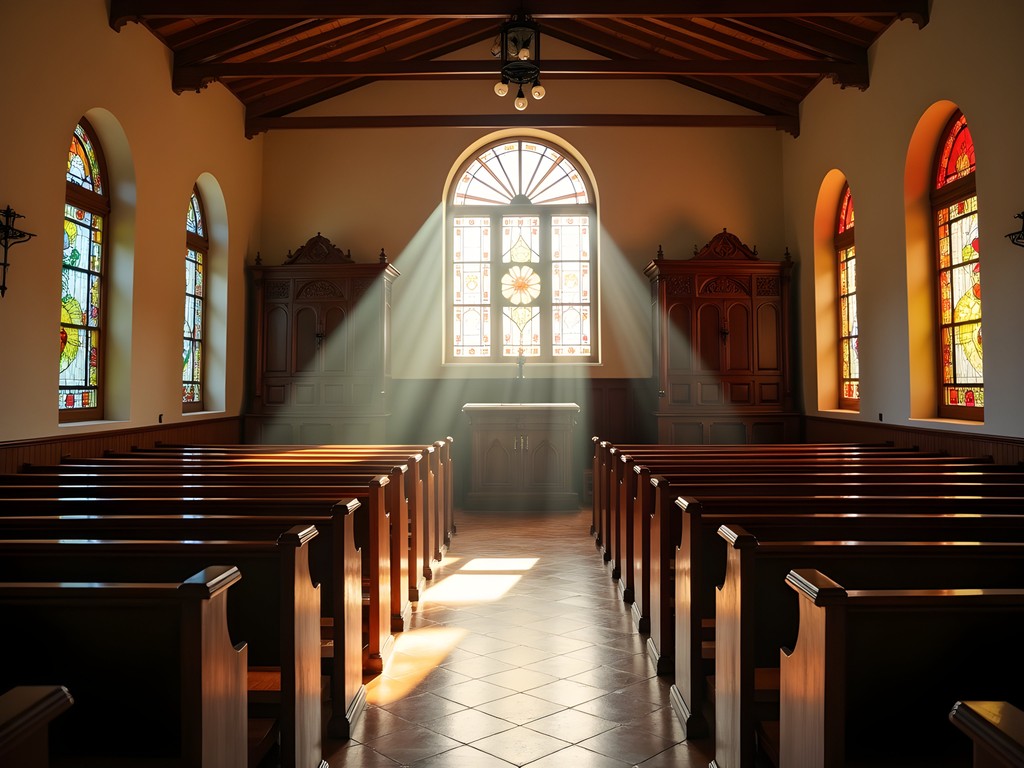
💡 Pro Tips
- Visit Iglesia de la Santísima Trinidad between 3-4pm when light streams through the west-facing windows
- Bring a small donation when visiting smaller churches to help with preservation
- At Cementerio Civil, look for the symbols that tell stories about the deceased's life philosophies
The Forgotten Sugar Baron Mansions
Ponce's architectural splendor was built on sugar, and the evidence stands in the form of magnificent mansions hidden just beyond the tourist center. My research journeys have led me to Hacienda Buena Vista, but the real treasures are the lesser-known urban mansions of the sugar barons.
Casa Serrallés (not the museum but the private residence nearby) represents the height of tropical Victorian architecture. Though not regularly open to the public, its exterior details—the ornate woodwork known as 'gingerbread' trim and distinctive turrets—can be admired from the street. I've spent hours photographing these details that showcase the craftsmanship of Puerto Rican artisans adapting European styles to tropical aesthetics.
For an immersive experience in this architectural history, I recommend staying at Ponce's hidden gem, the boutique hotel, housed in a beautifully restored 19th-century building. The owners have preserved original architectural elements while adding modern comforts, creating a living museum where you can actually spend the night surrounded by history.
Don't miss Villa Degetau on Calle Cristina, with its unusual blend of Art Nouveau and neoclassical elements. The current owners occasionally allow visitors to see the interior courtyard with its original fountain if you inquire politely. When photographing these historic facades, I often use my polarizing filter to cut glare and bring out the rich colors and textures of the historic woodwork and paint.
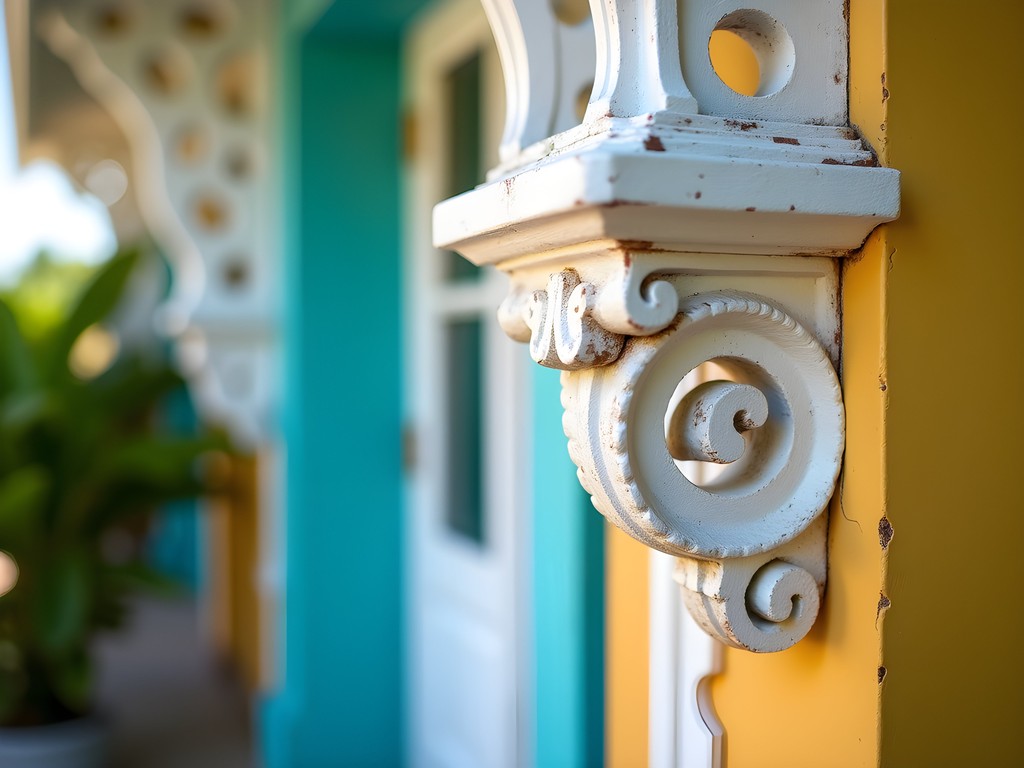
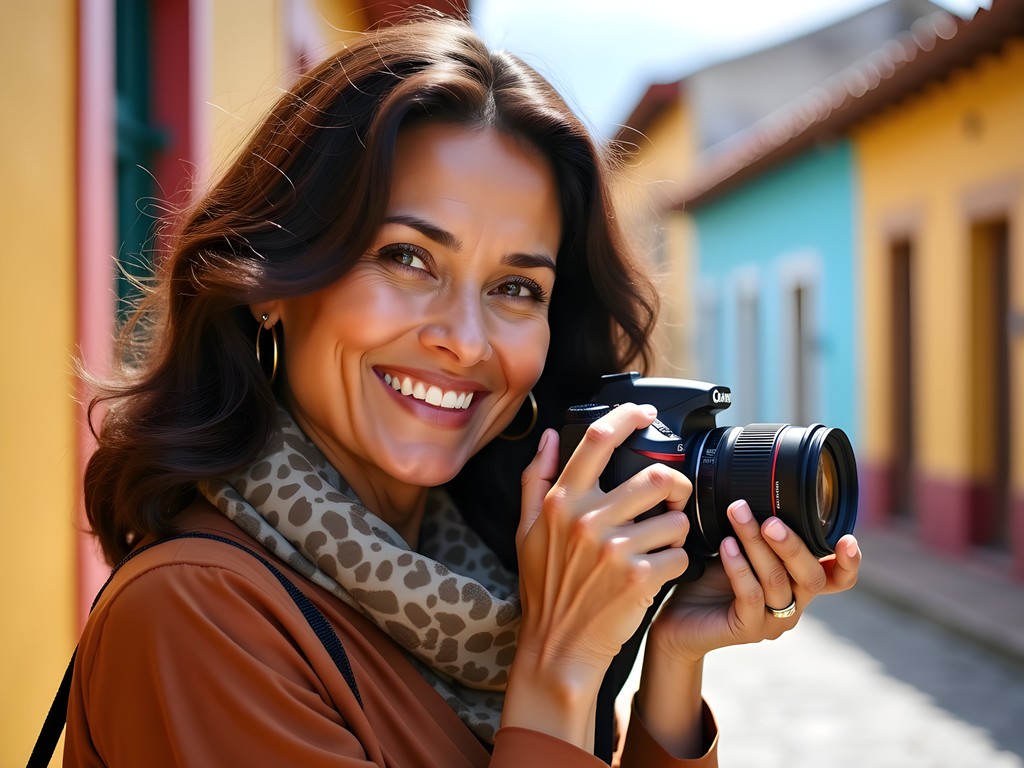
💡 Pro Tips
- Walk the streets early morning or late afternoon when the slanted light accentuates architectural details
- Look up! The most interesting elements are often above eye level in cornices and balconies
- Bring a detailed street map as some of these mansions are tucked away in residential areas
Hidden Plazas and Forgotten Fountains
Ponce's plazas tell stories of community life across centuries, yet visitors rarely venture beyond Plaza Las Delicias. My favorite hidden gem is Plaza Muñoz Rivera, a leafy retreat where locals gather in the late afternoon. The bronze sculpture of the political leader stands amid tropical foliage, creating fascinating shadow patterns throughout the day.
Nearby, seek out Fuente de los Leones (Fountain of Lions), a smaller replica of a famous fountain in Spain that speaks to Ponce's ongoing cultural connection to its colonial past. I've spent many evenings here capturing the play of sunset light on the water and stone. The plaza is rarely visited by tourists but remains a gathering place for older Ponceños who share stories if you take time to listen.
For the perfect evening stroll, follow Paseo Atocha to discover hidden architectural details illuminated by vintage-style street lamps. This is when I pull out my compact LED light to subtly highlight architectural details for photography without disturbing the evening atmosphere.
After exploring these hidden plazas, cool down with a traditional limber (frozen fruit treat) from Kiosko El Obrero near Plaza Muñoz Rivera – they've been making them the same way for generations, and the coconut is transcendent. I always carry my reusable straw in my camera bag for these spontaneous treats, combining environmental consciousness with my love of local flavors.
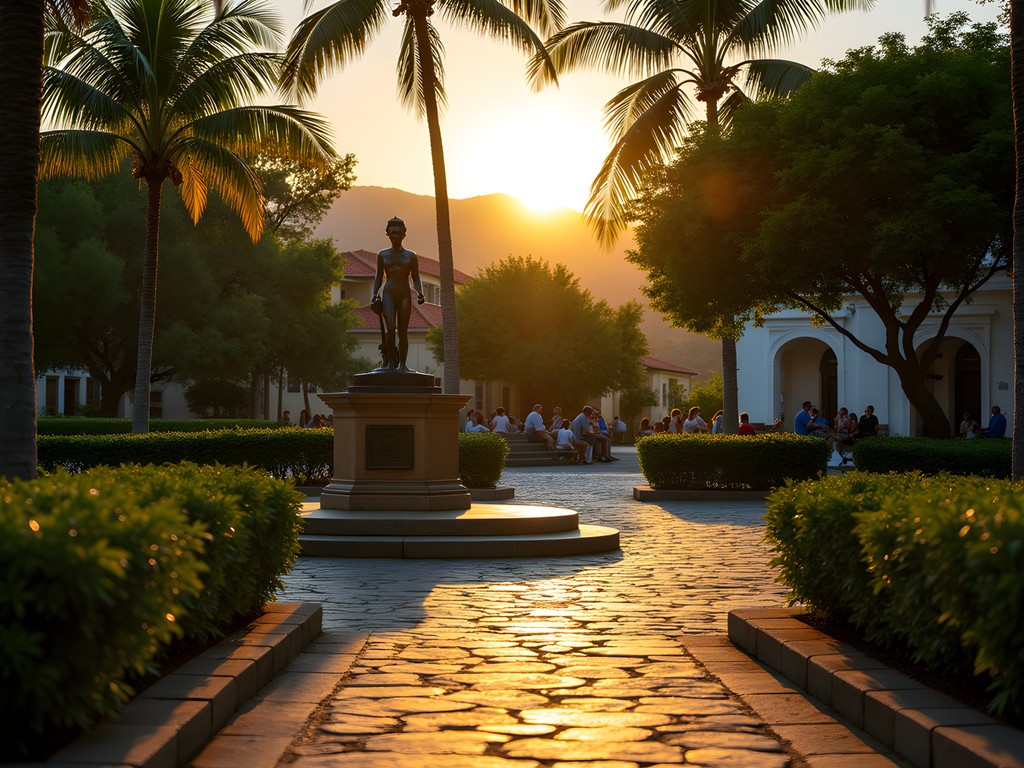
💡 Pro Tips
- Visit Plaza Muñoz Rivera around 5pm when locals gather and light is golden
- Bring small bills for street vendors selling traditional treats around the lesser-known plazas
- Learn a few phrases in Spanish - locals in these off-the-beaten-path areas may not speak English but are incredibly welcoming
Architectural Time Travel: Ponce's Historic Commercial Buildings
Beyond residential and religious structures, Ponce's commercial buildings offer a fascinating architectural timeline rarely explored by visitors. The Fox Delicias Theater, with its Art Deco facade, stands as testament to Ponce's cultural golden age. Though currently undergoing restoration, its exterior details reveal the optimism of 1930s Puerto Rico.
Nearby, seek out the former Banco Crédito y Ahorro Ponceño building, a neoclassical gem with unexpected Moorish influences in its interior courtyard. If you're lucky enough to find it open, the light well creates a photographer's dream of shadows and reflections.
My most treasured discovery is the old Mercado de las Carnes (Meat Market), now repurposed but retaining its original iron framework. The morning light through its historic windows creates patterns that I've photographed dozens of times, each visit revealing new details.
When documenting these architectural journeys, I keep detailed notes using my weatherproof notebook, which has proven invaluable during unexpected tropical showers. The ability to jot down architectural details, historical notes from conversations with locals, and lighting conditions has enriched my photography and deepened my connection to these spaces.
For couples exploring these hidden commercial treasures, I recommend ending your architectural tour at Café Lucero, housed in a former 1920s pharmacy. The original shelving and apothecary details remain, while they serve exceptional locally-sourced coffee. It's the perfect place to compare notes and photos from your architectural treasure hunt.
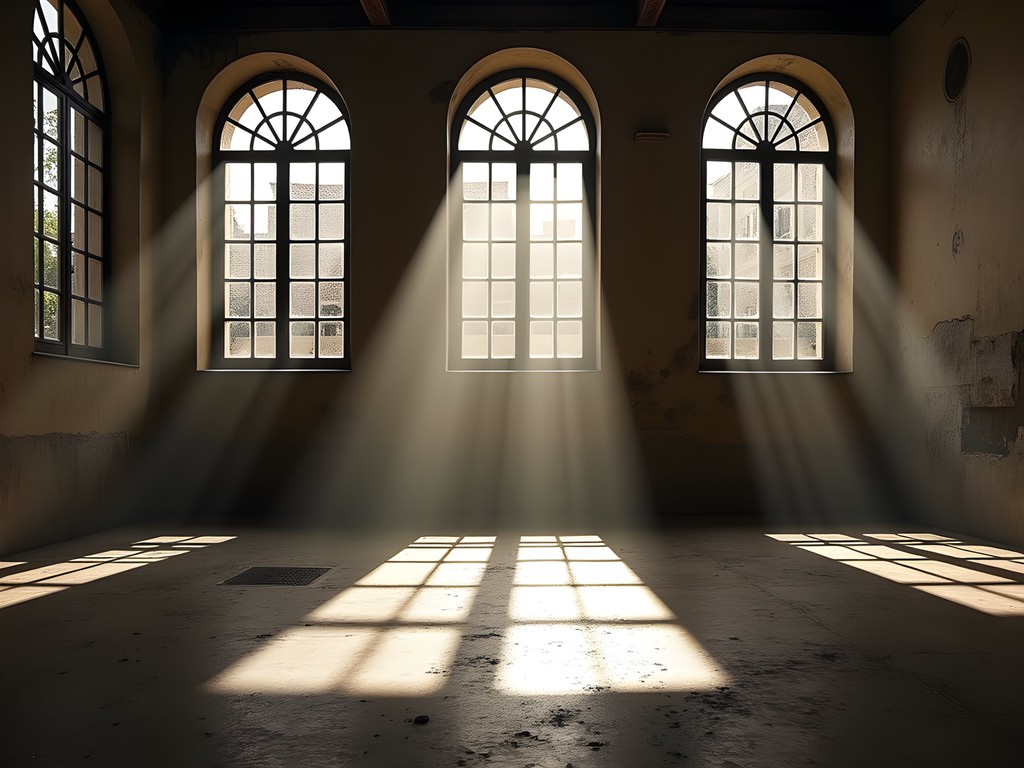
💡 Pro Tips
- Ask permission to enter commercial buildings - many owners are proud to show historical features if asked respectfully
- Look for original floor tiles - they often reveal the building's original purpose and era
- Visit the Municipal Office of Historic Preservation for maps of significant buildings not on typical tourist routes
Final Thoughts
As I pack away my camera after another journey through Ponce's architectural treasures, I'm reminded that these buildings are more than just beautiful structures—they're the physical embodiment of Puerto Rico's complex cultural identity. Each facade tells stories of colonial influence, sugar wealth, natural disasters, and resilient rebuilding. For couples seeking a meaningful weekend escape, Ponce offers a chance to connect with history while creating your own memories among these storied walls.
The true magic of exploring Ponce's hidden architectural gems lies not just in photographing beautiful buildings, but in the conversations with proud local residents, the unexpected details discovered around quiet corners, and the way tropical light transforms familiar surfaces throughout the day. Return visits reveal new layers of understanding, much like getting to know a complex old friend.
I invite you to wander beyond the tourist maps, to seek out the forgotten corners where Ponce's architectural soul truly lives. Your patience will be rewarded with authentic experiences and photographic opportunities that capture not just buildings, but the spirit of a place where history breathes through every ornate balcony and weathered stone doorway.
✨ Key Takeaways
- Ponce's architectural heritage extends far beyond the famous landmarks in tourist guides
- Early morning and late afternoon offer the most magical lighting for photographing historic buildings
- Taking time to connect with locals often leads to discoveries of buildings not open to the general public
- The city's architecture tells a complex story of colonial influence, sugar wealth, and cultural resilience
📋 Practical Information
Best Time to Visit
Year-round, though January-March offers pleasant temperatures with less rain
Budget Estimate
$150-250/day for mid-range accommodations, meals and activities
Recommended Duration
2-3 days minimum to explore hidden architectural sites
Difficulty Level
Easy To Moderate - Most Sites Within Walking Distance But Some Require Arranging Special Access
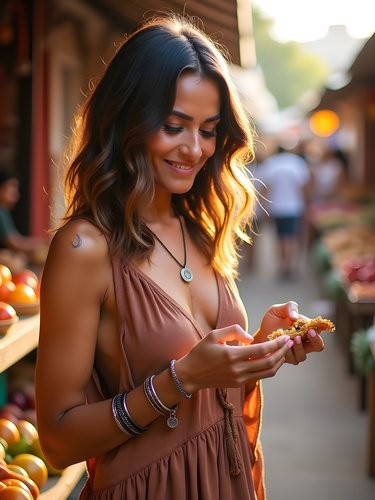
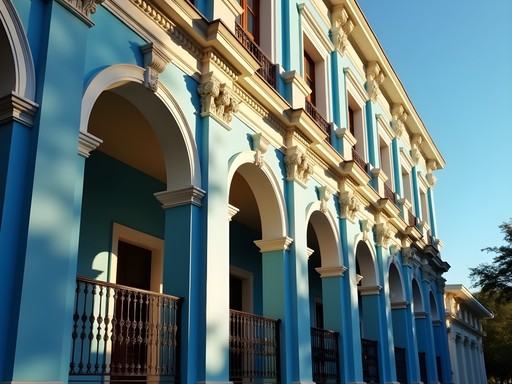
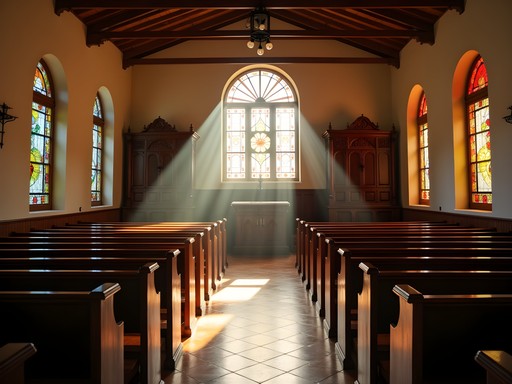
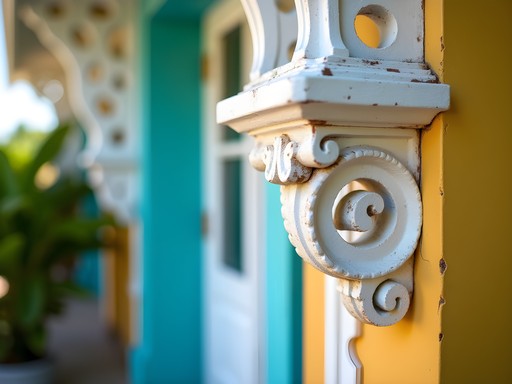
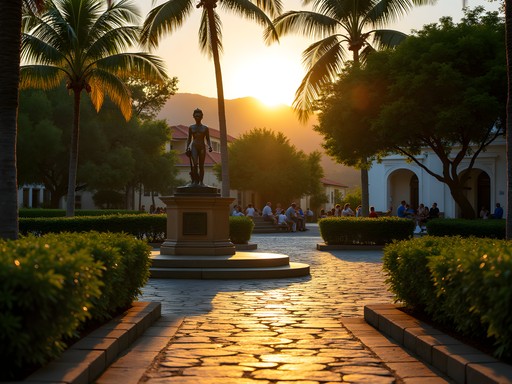
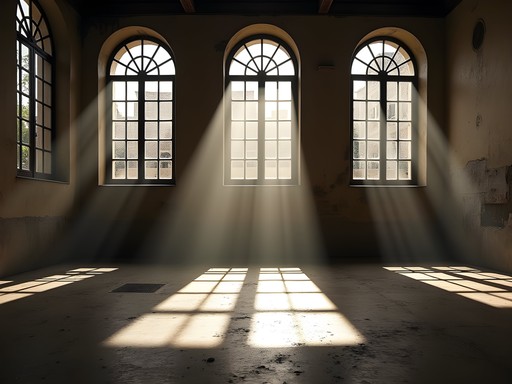


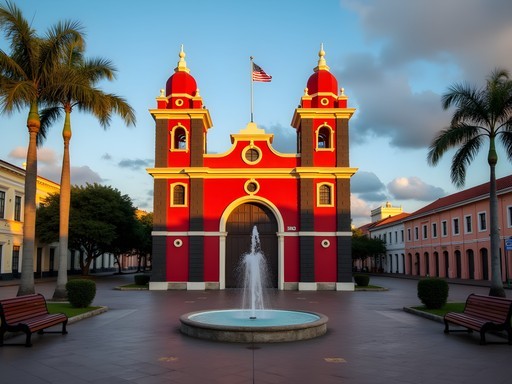
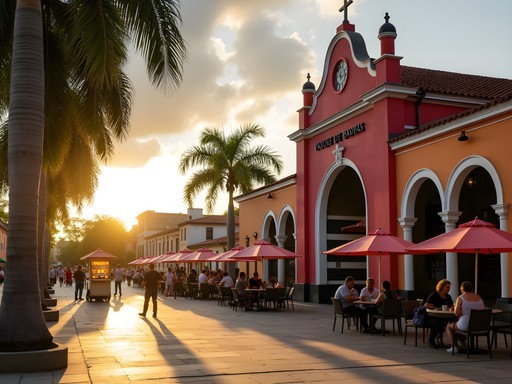


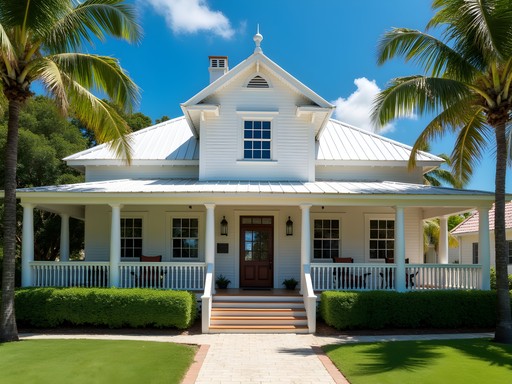

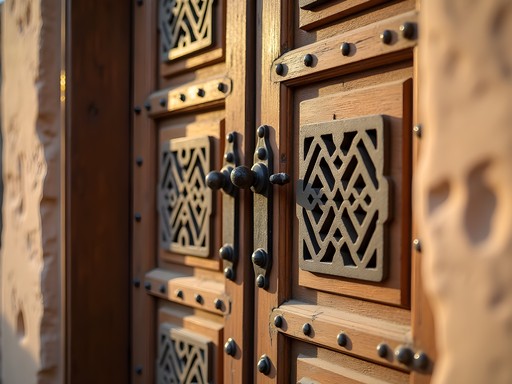
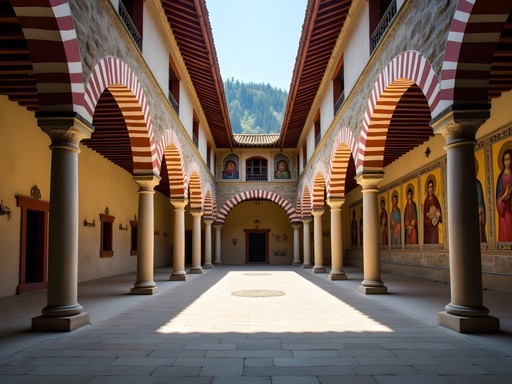
Comments
Timothy Jenkins
Brilliant piece, Claire. I visited Ponce three years ago whilst researching Spanish colonial architecture across the Caribbean, and I completely agree it's criminally overlooked. The neoclassical facades along Calle Mayor are extraordinary - some of the finest examples outside of Havana. I'd add that the Museo de la Historia de Ponce (in the old mansion) offers excellent context for understanding the sugar trade's influence on the city's development. The docents there are incredibly knowledgeable. I used this architecture guide to identify the different styles, which enhanced the experience considerably.
Claire Rivera
Timothy! So glad you made it there. The Museo de la Historia is wonderful - I should have included it in the post. The docents really do make such a difference in understanding the layers of history.
oceanking597
If you go, definitely visit on a weekday. I went on a Saturday last year and some of the churches mentioned were closed for private events. Also the Cementerio Católico San Vicente de Paul is absolutely worth the visit - bring your camera for sure. The marble sculptures are insane.
exploreblogger
Good to know about weekdays, thanks!
travelpro
Adding this to my Puerto Rico list!
Savannah Torres
Claire, this brought back so many memories! We took our kids to Ponce last summer and stumbled upon one of those forgotten plazas you mentioned - I think it was Plaza Muñoz Rivera? My daughter said it felt like we'd discovered a secret garden. We spent an hour there and only saw two other people. The contrast with San Juan's crowds was incredible. One tip for families: the ice cream shop near Parque de Bombas (can't remember the name) was a lifesaver with three tired kids in the heat!
Claire Rivera
Yes! Plaza Muñoz Rivera is exactly the kind of place I wanted to highlight. It's so peaceful. And I know that ice cream shop - King's Cream, right? Their parcha flavor is incredible 😊
photoone6417
Your photos are stunning!
exploreblogger
This looks amazing! Quick question - how easy is it to get around to these places without a car? Thinking of visiting in March but not sure about renting.
Claire Rivera
Hi! Most of the spots I mentioned in the historic center are totally walkable - you can cover them in a day on foot. For the sugar baron mansions outside town, you'd need a car or taxi though. The públicos (shared vans) can work but they're not super tourist-friendly.
exploreblogger
Perfect, thanks! That helps a lot.
explorewanderer843
Those sugar baron mansions look hauntingly beautiful! Can't believe they're just sitting there abandoned.
Hunter Thompson
Just got back from Puerto Rico last week and made a detour to Ponce after reading this post - THANK YOU Claire! The hidden plazas were absolute magic, especially that tiny one with the broken fountain you mentioned (Plaza Mercado). We were the only tourists there! An elderly gentleman approached us and shared stories about how the plaza used to be the center of local life in the 60s. We would have completely missed it without your guide. The contrast between these forgotten corners and the more polished tourist areas really gives you a sense of Ponce's complex history. One tip for others: many of these sites have inconsistent opening hours, so be flexible with your itinerary!
wandervibes
Did you need special permission to photograph inside any of these buildings? I'm a photography student and would love to capture some of these spaces.
Claire Rivera
For most exterior shots, you're fine without permission. For the abandoned mansions, technically you should get permission from property owners, but many are unclear. The churches require permission from local caretakers - usually just asking politely works! I always carry my camera bag which looks professional but doesn't scream 'tourist' - helps when approaching locals about access.
wanderlustrider
Planning a trip to PR in November and want to spend 2 days in Ponce. Is that enough time to see these hidden gems? Any recommendations on where to stay that's central to these sites?
Claire Rivera
Two days is tight but doable! I'd recommend staying at Hotel Belgica or Meliá Century - both are historic buildings themselves and centrally located. Start early and group the sites by neighborhood. The mansions and forgotten fountains are mostly within walking distance of each other.
wanderlustrider
Perfect, thanks so much for the advice! Hotel Belgica looks amazing.
Venture X
Premium card with 2X miles, $300 travel credit, Priority Pass